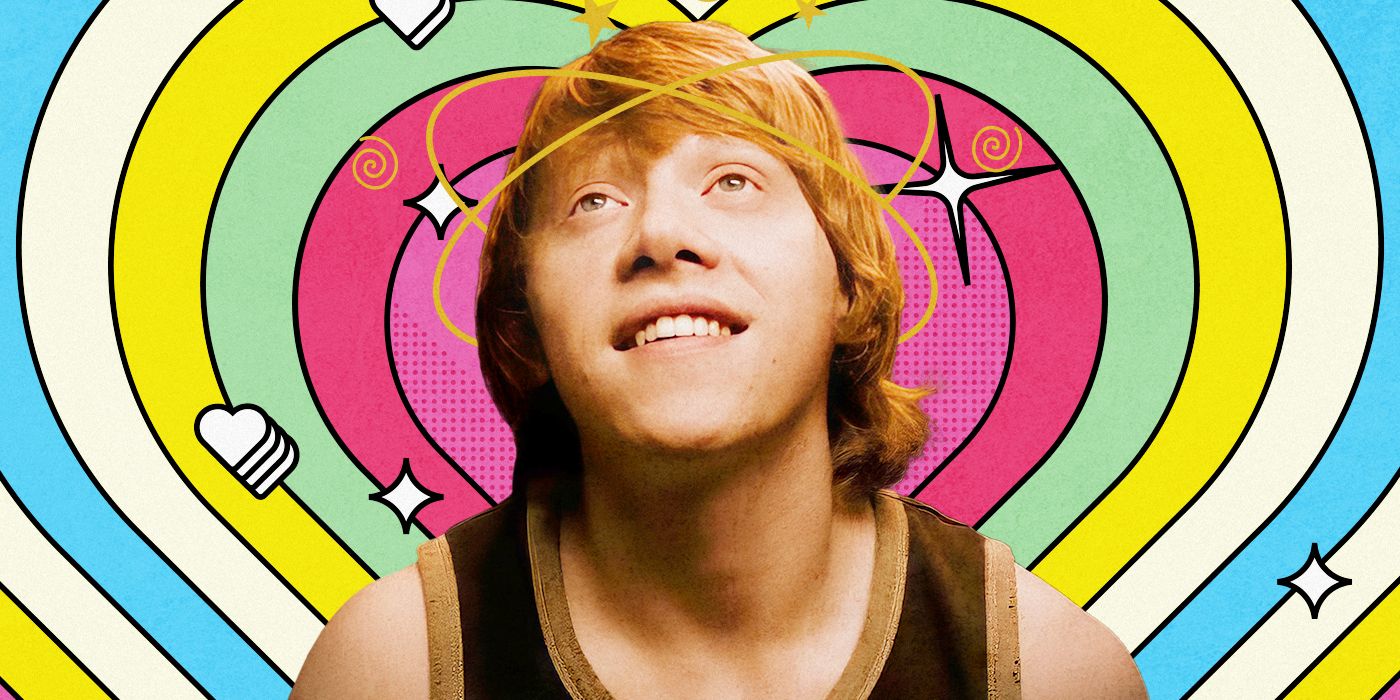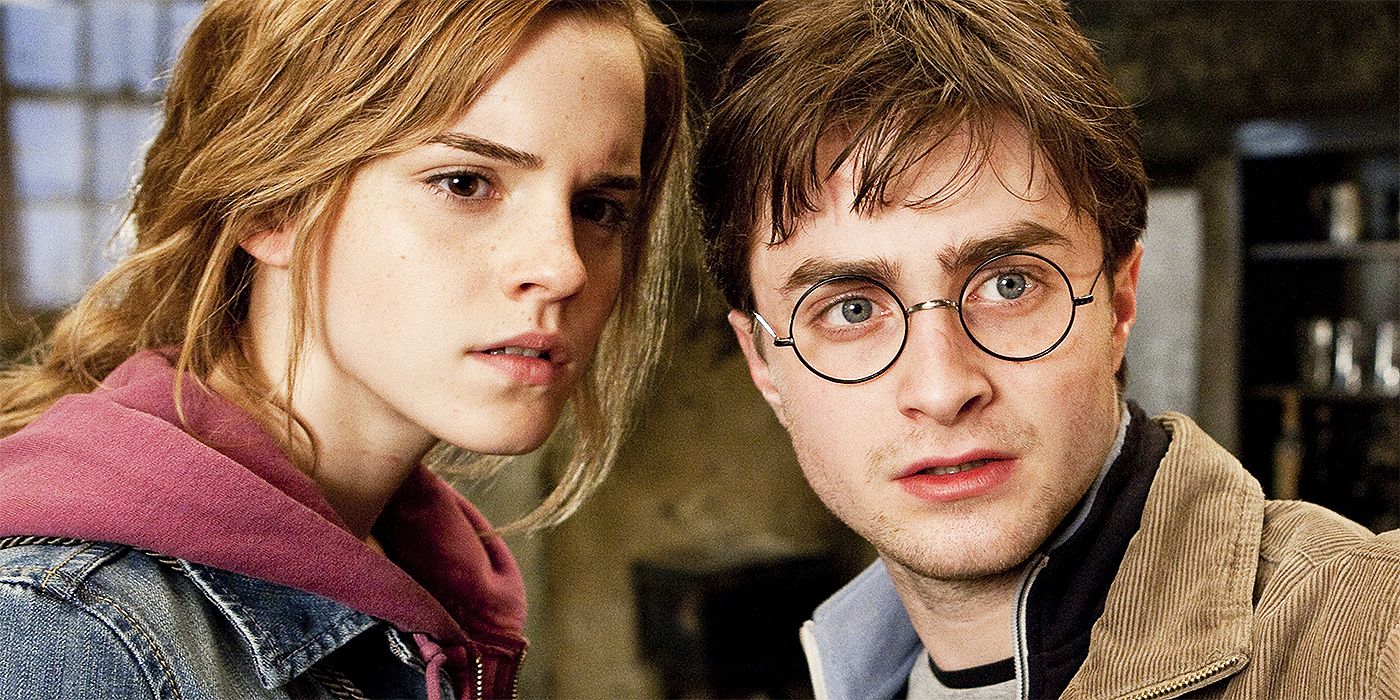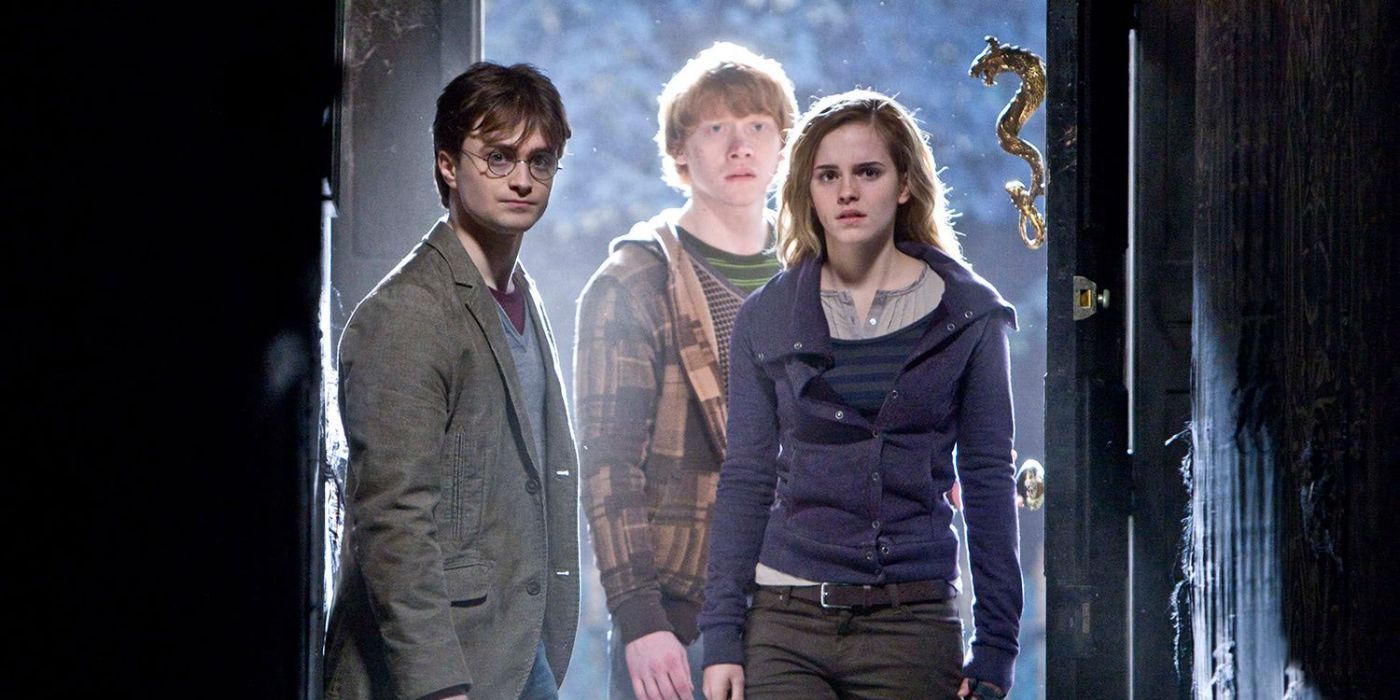There are mixed reactions and opinions surrounding the upcoming Harry Potter series on HBO that go far beyond the storytelling, relating to those involved in its creation, and the feeling that such a show is another example of a lack of originality in the industry. However, there are some clear advantages of a remake in the medium of television: they can fix the issues that were present in the films while exploring the books’ subplots on a deeper level. One of the biggest of these is Harry (Daniel Radcliffe) and Hermione’s (Emma Watson) implied romantic chemistry that made Ginny (Bonnie Wright) feel ignored.
In the books, Ginny is portrayed very differently compared to the movies. Multiple times throughout the original series, Ginny is a badass witch and an amazing Quidditch player. The relationship between her and Harry in the books is what partly fuels Harry’s desire to defeat Voldemort (Ralph Fiennes). However, the Harry Potter films handled her character terribly and ended up giving Harry and Hermione an odd romantic chemistry that was heightened in the latter films. While the end points of the relationships are all the same as in the books, HBO’s TV remake can immediately build to a certain goal, making these dynamics feel far more effective.
In General, Ginny’s Character is Treated Terribly in the ‘Harry Potter’ Films
Arguably, from the first moment of Ginny’s introduction in Harry Potter and the Chamber of Secrets, the future wasn’t promising, as her stunned face that lacked character depth would be how Wright was directed throughout the film and later in the series. While she is shy in the Chamber of Secrets too, it came from a place of idolizing Harry, rather than a lack of social skills, which is how it feels in the films. As the books progress, she becomes an integral part of the story, with her own agency. For example, it is Ginny who comes up with the name “Dumbledore’s Army” in Harry Potter and the Order of the Phoenix with the express intention of irritating Cornelius Fudge (Robert Hardy).
However, in the films, Ginny has barely any impact and is ignored for much of the series. She begins to have more screen time in Harry Potter and the Half-Blood Prince as she and Harry’s relationship begins to develop, as it does in the book too. However, in the film, this is done without any of her perspective, as she dates Dean Thomas (Alfred Enoch). Because she hasn’t had the previous interactions with Harry and is awkwardly forced into romantic scenes with him, the pair lack chemistry, leading to scenes such as the two of them in the Room of Requirement while hiding the Half-Blood Prince’s book and at the Burrow in Harry Potter and the Deathly Hallows: Part 1. Despite the fact Harry is obsessed with Ginny in the books, that passion doesn’t get communicated effectively because there was little development before they got together.

Related
10 Ron Weasley Quotes That Prove He’s the Best Character in Harry Potter
Where would we be without our Won Won?
Harry and Hermione’s Chemistry in ‘Deathly Hallows: Part 1’ Created an Awkward Tension With Ron
Not successfully adapting the relationship between Harry and Ginny would be bad enough, though perhaps it would be forgivable so long as nothing else was changed that further lessened their dynamic and other character relationships. Yet, that is exactly what happened in Deathly Hallows: Part 1 as Harry and Hermione have an implied chemistry that wanders into the realms of potential romance. There is the chance that this was not David Yates‘ exact intention, though the entire portrayal of their friendship feels messy in the film. When Ron leaves in the book, his main reason for doing so is feeling like they are not making good enough progress, as well as the Horcrux making him feel like all hope is lost. In the film, he bases his desperation and anger on a paranoia surrounding Harry and Hermione. This ends up framing Ron as a jealous lover rather than a caring family member who gives up out of sheer frustration and depression.
Furthermore, the film decides to push this idea even after Ron leaves and comes back to the group. A scene of Harry and Hermione dancing to music could be seen as platonic care for each other, though, because of Ron’s suspicions and the lack of Harry’s love for Ginny, it feels like it could be proving Ron’s point. The real crime comes at the end of this strange arc when Ron is shown a vision by the Horcrux of Harry and Hermione naked and passionately kissing. Once again, this overt portrayal of the two as a romantic pair is not present in the book, where they are described as “two grotesque bubbles, the heads of Harry and Hermione, weirdly distorted.” Even when it is said the apparitions kiss, the text simply states “their lips met,” not that they were so intimately positioned. Overall, it represents an odd point of tension that feels like it was blown up to pad for runtime due to the split-up final book.
In the end, this is the greatest benefit of the television approach, as well as the fact that all the books have been released, with the films receiving feedback about what worked and what didn’t. More time can be devoted to fleshing out character dynamics, especially Ginny’s fiery personality, which makes her the loveable rebel who is also a huge fan favorite in the books. With full seasons rather than just a singular movie, that is at least 5-6 more hours of content. Additionally, the creators of the series know how important Ginny is to the overall narrative and how badly a poorly written version can be received. If this is the case, then any conflict between Ron and Harry would feel far less likely to center around who Ron believes Harry has feelings for, and rather explore more nuanced ideas over the stress such an impossible battle would have on people as young as the trio are. Considering the casting for the new trio has only recently been announced, it’s safe to say it’ll be a long time before we know if these fixes will happen and succeed, though I will certainly be hoping they do.
All of the Harry Potter movies can be streamed on HBO Max in the U.S.

